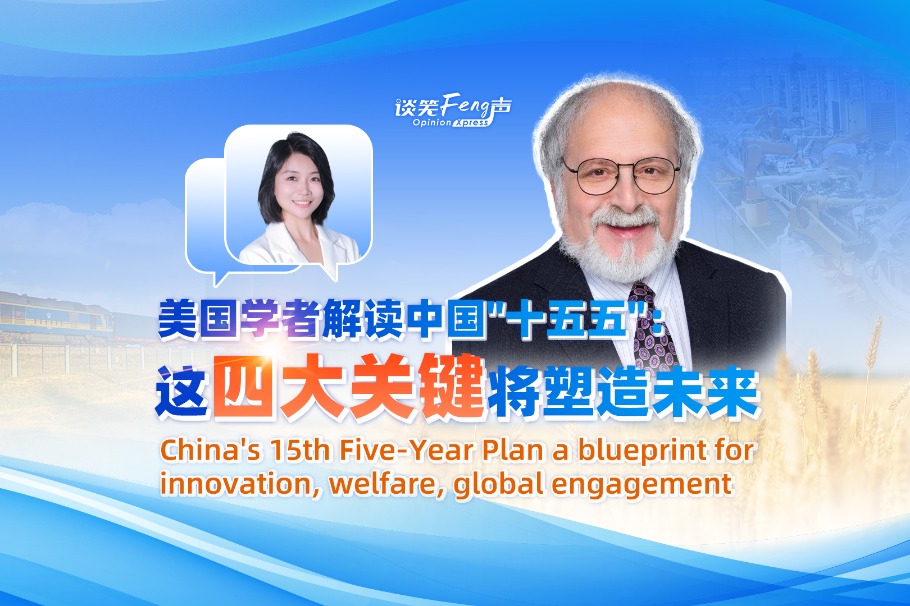Wu's adieu leaves relations in good shape

Former Chinese ambassador to EU looks back on two fulfilling years and ahead to greater cooperation
As Wu Hailong, the Chinese ambassador to the European Union, was preparing to leave Brussels last week to start a new chapter of his diplomatic life in Geneva, the veteran diplomat says two recent developments had made him more confident about future relations between China and Europe.
First, following the 10th anniversary of their comprehensive strategic partnership in 2013, both sides are to accelerate cooperation to boost bilateral relations in the coming decade.
Secondly, the EU's steady recovery from its sovereign debt crisis and recession, and its continual integration, have given China the chance to rediscover the bloc's strengths. Wu believes this will create more opportunities for cooperation on projects.
"What both sides need to do is to maintain warm relations in 2014 with more frequent high-level exchanges, and I think we can achieve that," Wu says.
After being in the post for nearly two years, Wu will be moving to Geneva to work at the office of China's ambassador to the UN. He says the office needs "professionals" to deal with dozens of international organizations in designing global norms and protecting his country's interests through endless technical talks and negotiations.
Wu, 58, has great experience in this area, having worked in Vienna as ambassador at the UN's facilities there, then as director-general of the Department of International Organizations and Conferences at the Chinese Ministry of Foreign Affairs, and from 2009 to 2012 as assistant minister of Foreign Affairs responsible for international organizations, conferences and arms control.
Yang Yanyi, assistant minister of the International Department of the CPC Central Committee, is scheduled to replace Wu.
Wu started his mission in Brussels early 2012, the year when the EU and China held two summits and the comprehensive strategic partnership had reached a high level. However, later that year the EU initiated an anti-dumping and subsidy case to block China's solar exports even though it had agreed not to impose trade protection measures at various G20 summits since 2009.
After long negotiations and with the intervention of political leaders on both sides, the EU has agreed to accept an undertaking that China's solar exports will meet a minimum price level when they are introduced to the European market.
"We welcome this agreement between the European Commission and China's solar exporters and I hope we will continue to resolve any trade frictions in a positive, amicable, practical and flexible way to create positive conditions for economic cooperation," Wu says.
After the settlement, Chinese Vice-Premier Ma Kai held high-level economic and trade discussions with his counterparts in Brussels, and relations improved further when European leaders visited Beijing in November to hold their first summit with China's new leaders.
Beijing and Brussels agreed on a blueprint for relations up to 2020 and decided to double their trade volume to $1 trillion over that period.
"I believe this momentum in bilateral relations can be maintained, as both sides are planning to hold more frequent high-level meetings," Wu says.
There will be plenty of opportunities for Chinese leaders to visit Europe this year. In the first half of the year, China and France will celebrate the 50th anniversary of diplomatic relations, and the Netherlands will be hosting the world nuclear summit. In the second half, Italy will host ASEM summit, and China and the EU will hold their annual summit in Brussels.
Brussels and Beijing are also planning to hold strategic, economic and trade, and people-to-people dialogues throughout the year.
While the trade dispute affected bilateral relations during Wu's term in Brussels, he believes friction might increase in the future because trade relations are changing from being complementary to being competitive in many areas as the nature of China's economy changes.
However, he says trade underpins the Sino-EU comprehensive strategic partnership and is the most dynamic and promising aspect of bilateral relations. The volume of China-EU trade is expected to reach $540 billion this year.
"Yet it remains so large that trade frictions will perhaps inevitably arise," Wu says. "The key is to upgrade our cooperation in a constructive manner, settle trade disputes through dialogue and consultation and refrain from resorting to trade remedy measures, which in the end only harm both sides."
Wu adds there are other ways to expand cooperation between China and the EU.
First, China should speed up investments in Europe, given that the EU has agreed to launch the first round of negotiations on an investment agreement early this year. Also, China and Europe should expand cooperation areas in finance and currency swaps to facilitate trade and investment.
"In addition to policy talks, I also suggest that China and the EU launch more pragmatic projects, similar to those in central and eastern parts of Europe," he says.
Beijing began holding annual meetings with leaders from those regions in 2012. Chinese Premier Li Keqiang announced dozens of cooperative infrastructure projects at a meeting in Romania in November.
With the changes taking place in the global landscape, Wu says more EU member states have demonstrated a similar need for and an interest in cooperation with China.
Through practical experience of cooperation between China and central, eastern, and southern Europe, Wu says all sides have learned that such cooperation has mobilized and incentivized the public, social and private sectors to work together.
To advance industrialization, IT application, urbanization and agricultural modernization, China needs more European products, investment, managerial expertise, science and technology, says Wu.
In return, he says, the transformation of China's development model will help expand domestic consumption, boost imports from and investment in Europe, which in turn will translate into new opportunities for European industries and contribute to growth and jobs in Europe.
Wu says China remains confident in the EU and supported it throughout the debt crisis.
The EU has the lead in science and technology, managerial expertise and innovation, he says, and China believes that the union's economic and social development will be reenergized following fiscal consolidation and structural reform.
"China also believes that the EU remains an important player in the world and is indispensable for battling global and regional challenges," Wu says.
fujing@chinadaily.com.cn
| Wu Hailong, former Chinese ambassador to the European Union, says he is more confident about future relations between China and Europe. Provided to China Daily |
(China Daily Africa Weekly 01/03/2014 page29)
Today's Top News
- Dutch govt urged to mend chip dispute
- Macao's heritage sites hold special appeal for games
- China tackles N2O emissions, leading change
- AI should build a future where technology serves people
- Japan bears blame for worsening China ties
- People-centered outlook applauded































